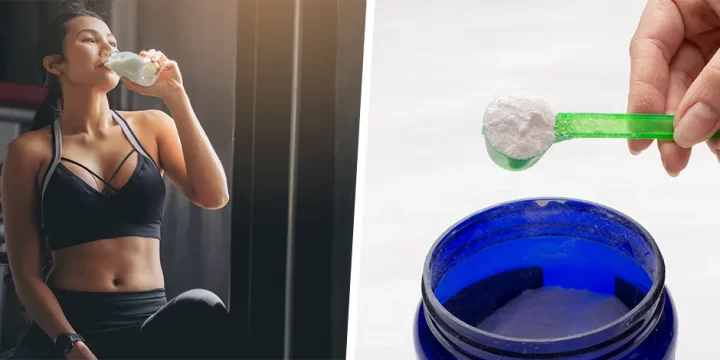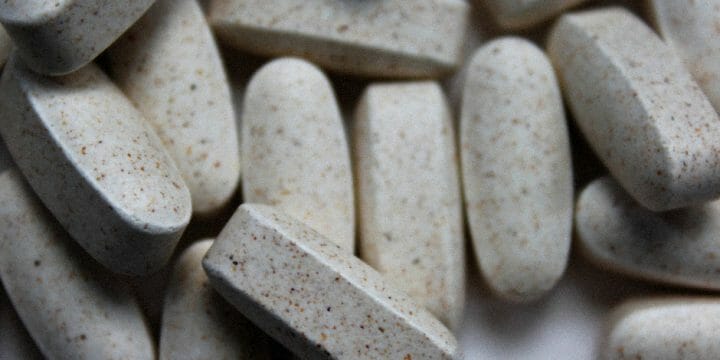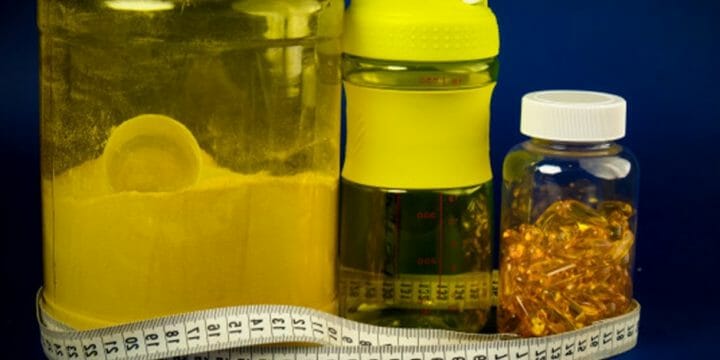It has been said timing is everything, and this rings true for pre and post-workout nutrition.
As a personal fitness trainer, my clients come to me for guidance as they establish or revise their fitness routines, and the question of eating before or after exercise comes up frequently.
I sat with our dietician to discuss proper nutrition around exercise and what factors would impact the eating schedule.
Read on to find out if you should eat a pre-exercise meal or wait until after.
Quick Summary
- Whether it's better to eat before or after a workout varies based on personal fitness goals, the type of food, and the duration of the exercise.
- Eating the right food at the right time can significantly enhance exercise performance, providing energy and aiding in muscle recovery.
- Research from the National Center for Biotechnology Information website indicates that consuming carbohydrates before exercising can boost performance, highlighting the importance of pre-workout nutrition.
- Ultimately, my experience tells me that the decision to eat before or after a workout should align with one's personal preference and body's response, as everyone's body reacts differently to food timing around exercise.
Which Is Better: Eating Before or After a Workout?

Whether it is better to eat before or after a workout depends on several factors like fitness goals, what you eat, exercise duration, and personal preference.
Before we dive into that, let's look at how food fuels exercise.
How Food Fuels Exercise
What and when you eat and how many calories you consume can significantly impact exercise performance.
Food provides your body energy, aids muscle recovery, and replaces glycogen stores. Every bit of our bodies needs energy to function, which comes from food.
According to an article published on the MedlinePlus website, carbohydrates are essential to fuel your body for exercise because the body converts carbs to glucose (blood sugar), the body's primary energy source [1].
Picking the correct carbs is essential:
- Monosaccharides (fructose) and disaccharides (table sugar) are easy-to-digest carbs, usually deemed simple. Simple carbs are often associated with candy, desserts, or highly processed foods, but remember, simple carbs occur naturally in healthy foods like fruits, milk, and other milk products.
- According to an article published on the MedicalNewsToday website, complex carbs take longer to digest, making them a more stable energy source [2]. Whole foods like legumes, vegetables, and whole grains contain complex carbs, which are excellent sources of vitamins, minerals, and fiber [3]. Soluble fibers are a great way to feel fuller longer, promoting calorie intake reduction and fast weight loss.
- Protein and fat finish off the nutrient trifecta for exercise. Protein provides the body with the essential amino acids necessary to repair and rebuild muscle, thus aiding recovery, while fat adds to the energy stores and helps the body absorb vitamins [4].
Eating Before

I advise my clients to eat any larger meal two or three hours before exercise and smaller meals and snacks for pre-workout within a two-hour window. Overeating before working out can make you feel sluggish, or you may experience an upset stomach during exercise.
However, studies show eating or drinking carbohydrates before exercise can improve performance [5].
Let’s take a look at some excellent food options before your workout.
A few hours before exercise:
- Turkey sandwich on whole-grain bread and a side salad
- Egg omelet with whole-grain toast and fruit (avocado spread or nut butter on toast)
- Lean protein, roasted vegetables, and brown rice as a pre-workout meal
Within two hours of exercise:
- Drinking a protein shake before or after a workout or pre-workout smoothie for weight loss that is made with milk, protein powder, and berries
- Whole-grain cereal and milk
- Oatmeal topped with banana and almonds
- Nut butter with fruit preserves on whole-grain bread
Within an hour of exercise:
- Greek yogurt with fruit
- A protein bar
- whole-grain toast with nut butter
- A piece of fruit like an apple, orange, or a banana as a pre-workout snack
Eating before a workout can help to mediate insulin response, which in turn can help burn fat as opposed to muscle. Regulating insulin levels and managing blood sugars, even for those without diabetes, can be an important key for people who want to lose fat and build muscle.
- Michelle Saari, registered dietitian and founder of The Dietitian Prescription
Related: What to Eat Before Your Morning Workout?
Eating After

Many of my clients don’t feel like consuming a meal immediately after a workout. If you feel the same way, a good snack can jumpstart recovery.
Some good post-workout snacks that provide carbs to refuel and protein to repair include:
- Crackers and canned tuna (or other canned fish)
- Fruit smoothie
- Turkey with string cheese and apple slices
- Hummus and raw vegetables
- Cottage cheese and fruit
If you are looking for something more substantial, a meal with a combination of carbs, complete protein sources, and foods containing healthy fats will replenish your energy stores and have your muscles on the road to recovery.
You can try:
- Grilled chicken with roasted vegetables
- Salmon with a sweet potato
- Loaded veggie frittata
- Grilled chicken or salmon with quinoa, kale, and feta salad
Not only is getting the proper nutrients after exercise critical to rebuilding muscle proteins and replenishing stored energy, but the timing of getting those nutrients is also equally important.
Traditionally, the recommended window to consume your post-workout nutrients was 45 minutes.
A newer Journal of the International Society of Sports Nutrition research shows the window may be larger, as much as three to four hours, depending on several variables, including whether a pre-workout meal was consumed [6].
“Adequate food and fluid should be consumed before, during, and after exercise to help maintain blood glucose concentration during exercise, maximize exercise performance, and improve recovery time. Athletes should be well hydrated before exercise and drink enough fluid during and after exercise to balance fluid losses.”
- The American College of Sports Medicine
Different Workouts Have Different Requirements

How and when fueling your body depends on your workout and preference.
Exercise duration is a significant factor so let’s look at how I advise my clients for each scenario.
A sports medicine publication titled “A Step Towards Personalized Sports Nutrition: Carbohydrate Intake During Exercise” supports that there is no hard and fast rule to carbohydrate consumption during exercise, but dependent on several variables, including tolerance, preference, and exercise duration.
The publication recommends that athletes test their nutrition strategy of gels, bars, drinks, and low-protein, low-fiber solid foods in training to reduce the chances of gastrointestinal discomfort and increase the intestine's absorptive capacity [7].
Longer Duration Sessions

Longer duration exercise, generally accepted as aerobic training sessions over an hour, will require you to consume carbs easily obtained through sports drinks, gels, or other transportable carbohydrates balanced with fluid intake.
Drinking 5-10 ounces of your favorite sports drink or mixing orange juice with your water every 20 minutes or so can be enough to fuel your workout.
Shorter Duration Sessions
Shorter training sessions of less than an hour do not generally require food intake.
They would lead to unnecessary extra calories, but as always, hydration is critical before, during, and after exercise.
I remind my clients that the nutrient supplementation I advise is merely a recommendation from years of study and experience.
The best thing they can do is pay attention to their bodies and experiment with timing and what works for them.
FAQs
Doesn’t Eating After a Workout Burn Fat?
No research I found suggests that not eating after a workout burns body fat.
What is proven is that eating a snack or meal with a combination of carbohydrates, protein, and fat promotes replenishment of glycogen stores and aids muscle recovery.
Is It Better to Work Out on an Empty Stomach?
If you want to lose weight, it may be better to work out on an empty stomach; however, consuming a small meal before exercise will likely give you more energy and improve your performance.
How Do Different Types of Food Affect Workout Performance and Recovery?
Different types of food impact workout performance and recovery in unique ways. Carbohydrates are ideal for quick energy before a workout, while proteins are crucial post-workout for muscle repair and recovery.
Are There Nutritional Differences Between Men and Women for Pre- and Post-Workout Meals?
Yes, nutritional needs can vary between men and women for pre-and post-workout meals. Women may require more iron-rich foods due to menstrual cycles, and men might need more calories, especially if they are aiming for muscle building.
How Does Age Influence Pre- and Post-Workout Nutrition?
Age significantly influences pre-and post-workout nutrition; older adults might need more protein to prevent muscle loss, while teenagers require more calories to support growth and high energy levels.
What Is the Role of Hydration in Workout Performance?
Hydration plays a crucial role in workout performance and recovery. Adequate hydration ensures efficient nutrient transport and waste removal from cells, and it helps maintain energy levels during exercise.
How Does Eating Timing Affect the Psychological Aspects of Exercising?
The timing of eating can greatly affect psychological aspects like motivation and mental energy during exercise. Eating too close to a workout may cause discomfort, while not eating might lead to low energy levels, affecting workout intensity and focus.
Final Thoughts on Eating Before or After a Workout
Food consumption around exercise time comes down to personal preference and tolerance, as everyone’s body responds differently.
There’s an advantage to each of these approaches. Dr. Yelena Deshko, founder of Timeless Health Clinic, explains that for pre-workout, quick digesting complex carbohydrates help sustain energy.
Post-workout, foods with plenty of amino acids help rebuild damaged muscle fibers.
Many of my fellow gym-goers who prefer to keep it light before exercise instead take pre-workout to stay hydrated, increase energy, enhance performance, and jumpstart recovery.
Taking any of these pre-workout supplements and following up with a nutrient-rich post-workout meal will maximize your efforts and aid recovery:
We have tested scores of pre-workout supplements and compiled a list of the best ones, so take a closer look to see which one tops our list.
References:
- https://medlineplus.gov/carbohydrates.html
- https://www.medicalnewstoday.com/articles/325171
- https://medlineplus.gov/ency/imagepages/19529.htm
- https://www.mayoclinic.org/healthy-lifestyle/fitness/in-depth/exercise/art-20045506
- https://www.ncbi.nlm.nih.gov/pmc/articles/PMC4042570/
- https://pubmed.ncbi.nlm.nih.gov/24149627/
- https://www.ncbi.nlm.nih.gov/pmc/articles/PMC4008807/
About The Author
You May Also Like






